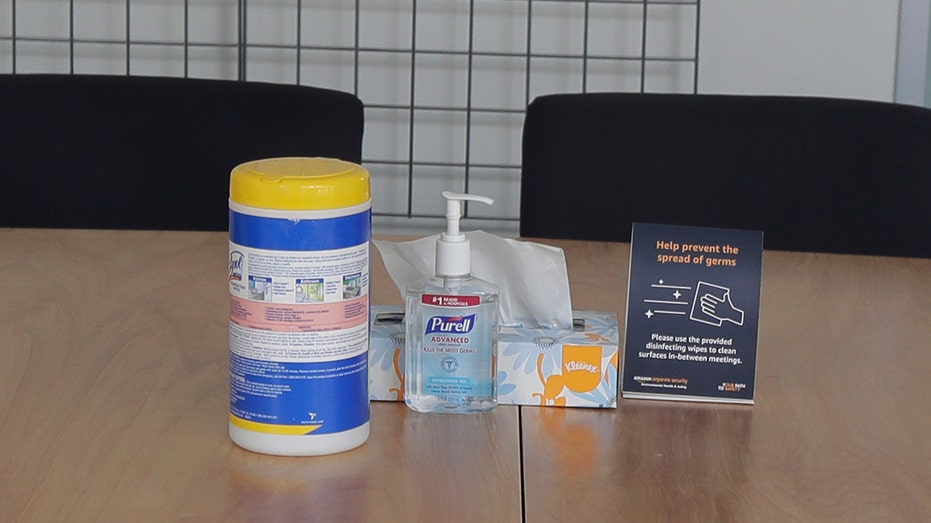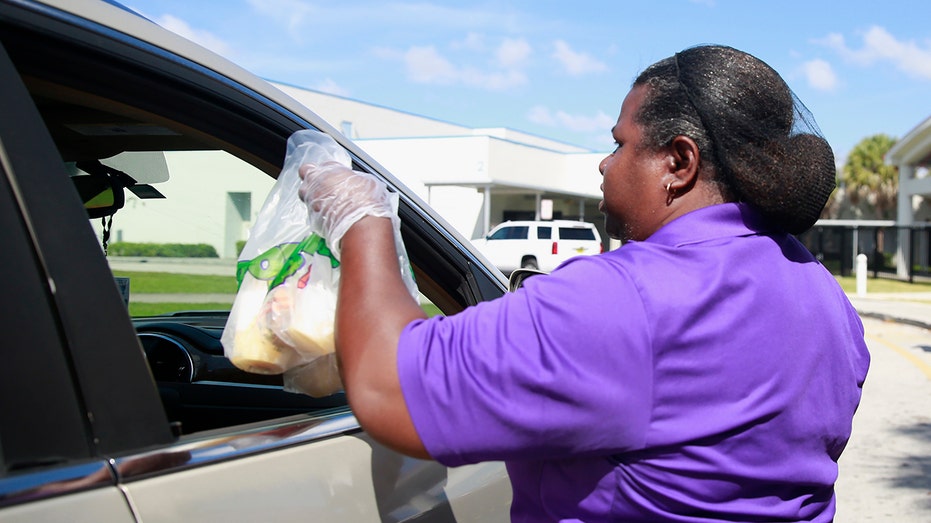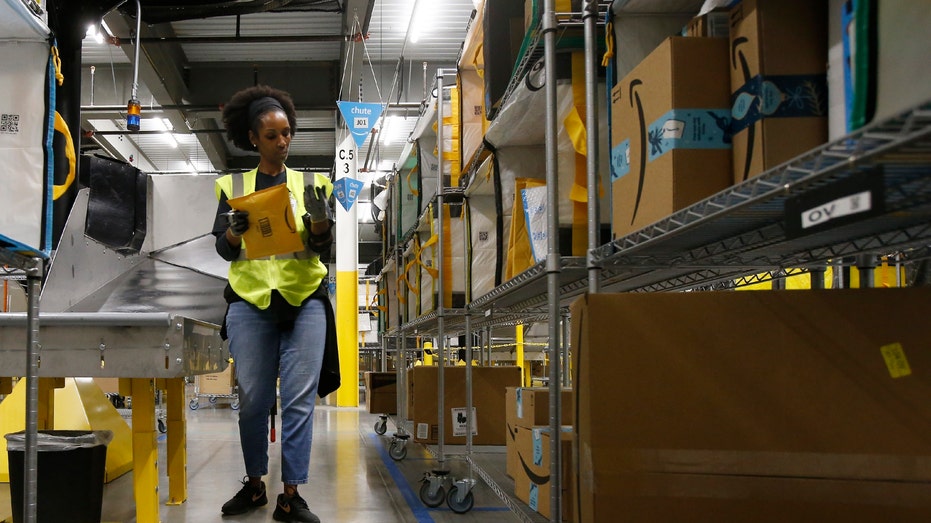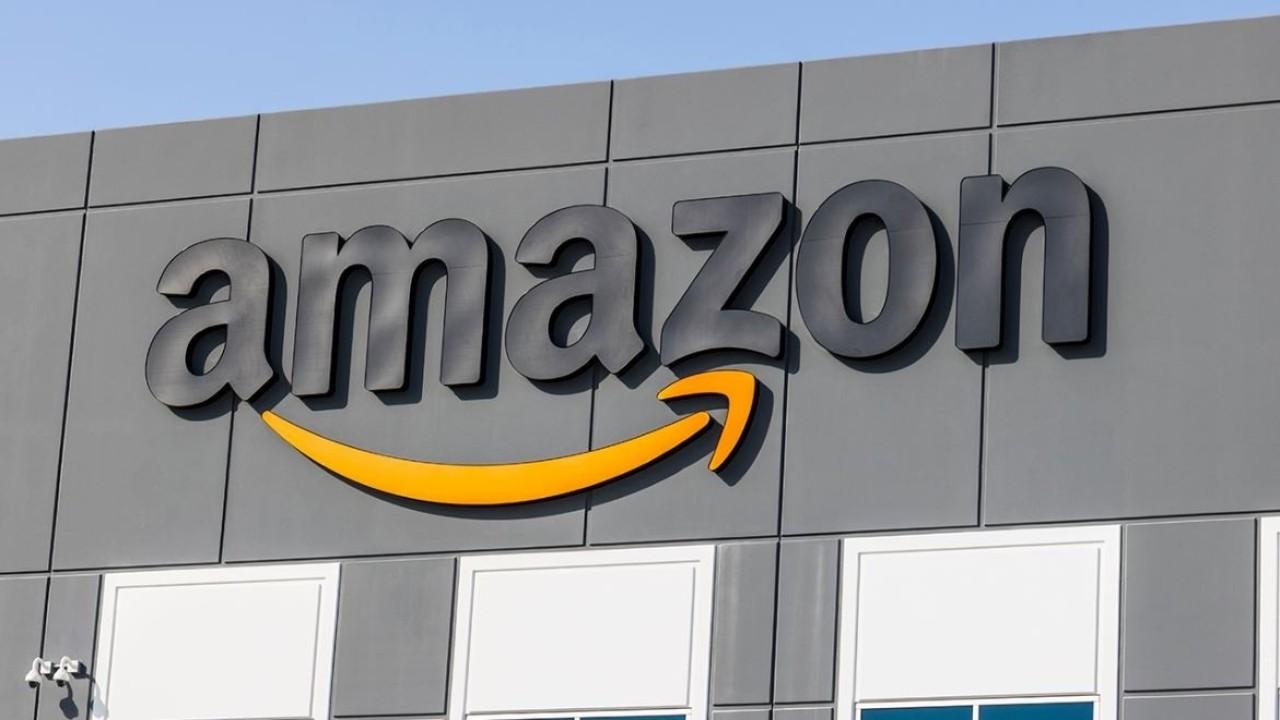Fake coronavirus products on Amazon: What to look for
Fakespot founder says many of the fake products are made in China
A number of Amazon products in high demand amid the novel coronavirus outbreak are being counterfeited.
Saoud Khalifah, founder and CEO of counterfeit finder and app Fakespot, said his company identifies counterfeit respiratory masks and gloves every day. Fakespot has also identified counterfeit hand sanitizer, COVID-19 information books and test kits, though those are less frequent.
"People are relying on Amazon right now," Khalifah told FOX Business in reference to the high-demand household products people are buying on the platform amid COVID-19 but added that bad actors "are capitalizing on the news and trends of today" by attempting to sell these counterfeit products.

Hand sanitizer, cleaning wipes and tissues sit on a meeting room table as seen through a window of the Brazil Building on Amazon's Seattle campus, Wednesday, March 4, 2020, in Seattle. (AP Photo/Ted S. Warren)
In one example, Khalifah sent a screenshot of N95 masks, which the Food and Drug Administration and Centers for Disease Control and Prevention recognize as "a respiratory protective device designed to achieve a very close facial fit and very efficient filtration of airborne particles."
AMAZON TO HIRE 100,000 WORKERS AMID SHOPPING SPIKE
While the FDA does not recommend N95 masks as a way to prevent from contracting COVID-19, it is a generally trusted type of mask among government agencies, and people who are buying masks amid the pandemic recognize the brand's credibility.
A search for "N95 masks" on Amazon, however, comes up with 100 different counterfeit entries, Khalifah said. The icons in the screenshot below represent counterfeit items detected by Fakespot.

Fakespot screenshot
Other brands/product types being ripped off by third-party counterfeit sellers include 3M masks, MedPride gloves and SAS Safety masks. Fakespot also identified fake test kits and fake books claiming to contain real information about COVID-19.
Amazon did not immediately respond to a request for more information about the counterfeit COVID-19-related products on its website.
"They are coming from China," Khalifah said, adding that many counterfeit products on Amazon have fake reviews that are simply copied and pasted from reviews of unrelated items like movies and books.
"They are building an inferior product for an inflated price. People can actually get sick if they use masks that [aren't legitimate]," he said.
Khalifah explained that Amazon's counterfeit issue began around 2014 when the tech giant started partnering with third-party vendors so they could sell products on the platform. More than half of Amazon's revenue comes from these third-party sellers, many of which sell counterfeit products.

Cafeteria worker Debra Thompson distributes a free lunch to the students and community at Dillard high school amid the coronavirus virus outbreak and school closings on Monday, March 16, 2020, in Fort Lauderdale, Fla. (AP Photo/Brynn Anderson)
And because many third-party sellers come from China and other foreign countries without the same regulations as U.S. companies, they do not have the same "ethical oversight" that U.S. companies have, Khalifah said.
"They will exploit customers, pump out fake reviews, sell counterfeit products," he said. "There is no ethical oversight for their businesses."
While the scale of Amazon's counterfeit problem is large, the tech giant has expanded its efforts to take down these counterfeit goods, especially during this unprecedented time.
AMAZON CEO JEFF BEZOS OFFERS CORONAVIRUS HELP TO WHITE HOUSE
Dharmesh Mehta, Amazon's vice president of worldwide customer trust, told a House subcommittee on March 4 that Amazon has taken down more than 1 million fake coronavirus products, according to Forbes.
"We’ve removed proactively more than a million products making false claims and tens of thousands of products that were attempting to price gouge customers," Mehta said. "This is a rapidly evolving situation and we’re being vigilant."

Tahsha Sydnor stows packages into special containers after Amazon robots deliver separated packages by zip code at an Amazon warehouse facility in Goodyear, Ariz. (AP Photo/Ross D. Franklin)
But the issue is still largely present, as Fakespot has found because, like Mehta said, the situation is "rapidly evolving."
GET FOX BUSINESS ON THE GO BY CLICKING HERE
"The company is huge," Khalifah said. "It's the hundred-pound gorilla in the room. They are doing a thousand things at once. They are doing so many things that they can't focus on just this one problem and do it right."
Khalifa said apps like Fakespot and Sentinel help both consumers and businesses selling on Amazon, eBay and other e-commerce websites avoid being scammed by third-party counterfeit sellers.
Fakespot, in particular, identifies fake products while users scroll through Amazon through its bookmark tool, or users can simply paste a link to a specific product on the Fakespot website to find out whether it is a legitimate product.




















